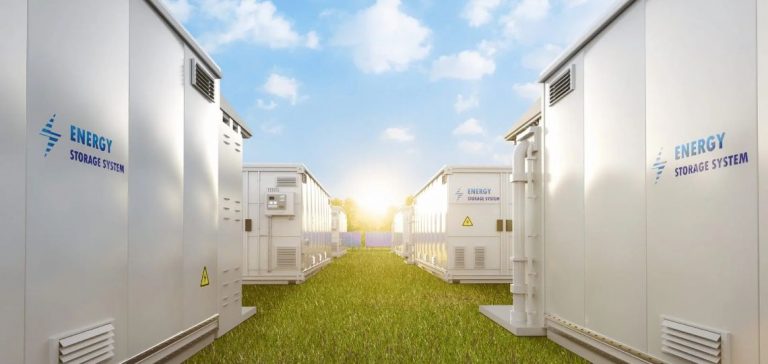The United Kingdom is establishing a cap-and-floor support program to encourage the construction of new long-duration energy storage infrastructures, which are crucial to support the growing renewable energy sector in the country. Announced on October 10, 2024, by the Department for Energy Security and Net-Zero (DESNZ), this program is designed to secure developers’ revenues by guaranteeing a minimum income while limiting potential earnings.
The targeted technologies include pumped-storage hydroelectric plants, as well as emerging solutions such as liquid air energy storage, compressed air energy storage, and flow batteries. The government estimates that developing 20 GW of storage capacity by 2050 could save the system £24 billion.
A Need for Long-Duration Energy Storage
The United Kingdom currently has four pumped-storage power stations totaling 2.8 GW of capacity. These facilities include the 1.7-GW Dinorwig and the 360-MW Ffestiniog power stations, both operated by First Hydro Holdings Co. in Wales, as well as the 440-MW Cruachan power station, operated by Drax Group PLC in Scotland, and the 300-MW Foyers power station, managed by SSE PLC. However, the newest of these installations, Dinorwig, entered operation in 1984.
Measures to Attract Investors
The UK Energy Minister, Michael Shanks, stated: “We are taking steps to reverse the trend by stimulating private investment in both established and new storage technologies.” According to him, these projects will allow the storage of excess renewable energy, thereby enhancing the country’s energy security while protecting consumers against price fluctuations.
A Program Inspired by Electrical Interconnections
The cap-and-floor program is inspired by the one in place for electrical interconnectors linking the United Kingdom with its European neighbors. This structure ensures that operators’ revenues do not fall below a certain threshold. So far, no payments have been necessary, with operators sharing their profits with consumers.
Two Application Paths
DESNZ clarified that the new program, managed by the Office of Gas and Electricity Markets (Ofgem), will consist of two distinct routes: one for mature technologies and the other for innovation projects. This will allow support for both proven solutions and innovative projects, thereby contributing to the United Kingdom’s overall decarbonization goal by 2030.





















